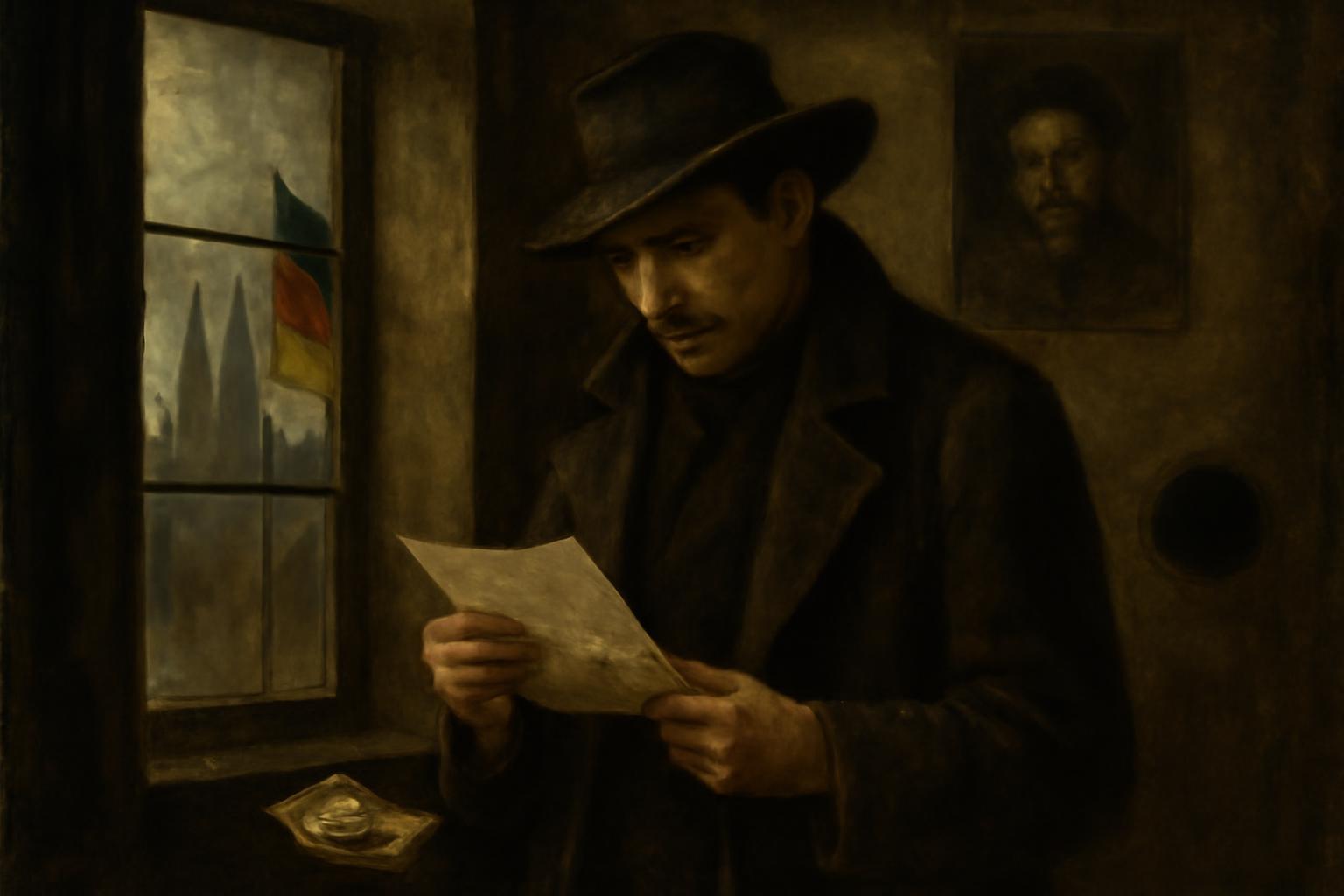In the gray corridors of Dresden, where once Saxon electors bred dreams of Kunst und Geist, the latest act of our modern tragedy unfolds, suffused with the stale aura of espionage—a drama of trust sundered, national secrets betrayed, and souls consumed by inscrutable allegiances that span continents. Here, Jian G.—a shadow laborer in the forgotten backrooms of European power—stands accused of a two-decades masquerade, slicing open the parchment of Germany’s statecraft and scattering its entrails before the gaping maw of Chinese intelligence. We are told: confidential reports cast beyond the pale, more than five hundred scrolls of the republic translated into coin for foreign masters; the very substratum of democracy—personal data, surveyance of dissidents—betrayed without a tragic mask, barefaced, in a world drained of sacred dread.
His alleged accomplice, a cog in the gargantuan machinery of international commerce, is made to answer for her part—transmitting details about arms, the commerce of death upon which our frail order so uneasily rests. The firm repudiations echo from Beijing, as if such protestations were not themselves part of the interminable theater Nietzsche saw: the mask beneath which nihilism grins.
Meanwhile, Maximilian Krah, the scion of a movement itself emblematic of modern Europe's fever-dream—AfD, where resentment entwines with aspiration—appears in this unworthy plot merely as a witness, his office rooms searched, the sanctity of personal space rendered null by suspicion and the omnipresent police gaze. Yet it hardly matters: the individual, the office, the cause—these are subsumed in the endless undoing and redoing of our institutions, the eternal recurrence of disillusionment.
What would the ancients think, beholding the Theater of Law and Surveillance that now substitutes for their Dionysian festivals? Once, treason was an act audacious, a crime tragic in its grandeur; now, it is a paperwork of emails, a harvest of secrets purchased with cynicism, without catharsis or fate. Oedipus was blinded by the gods; today, our sight fails by choice, blurred by digital fog and the mediocrity of motive.
All that was once solid—the dignity of civic engagement, the chiaroscuro of loyalty and betrayal, even the mythic resonance of East and West—is steadily dissolved by acids of utilitarian calculation. Nietzsche prophesied the flattening of values, the twilight of idols, and here it is: not with the violence of hammer-blows, but with the spiritual anemia of routine, the dull repetition of treachery dressed in the blandest attire.
Behold, the West—ailing, self-doubting, exchanged for the empty lucidity of global markets and the sterile calculations of bureaucrats and informers. No tragic hero rises to redeem us. We are left only with the melancholy chorus: "All things fall; nothing endures but decline itself."
